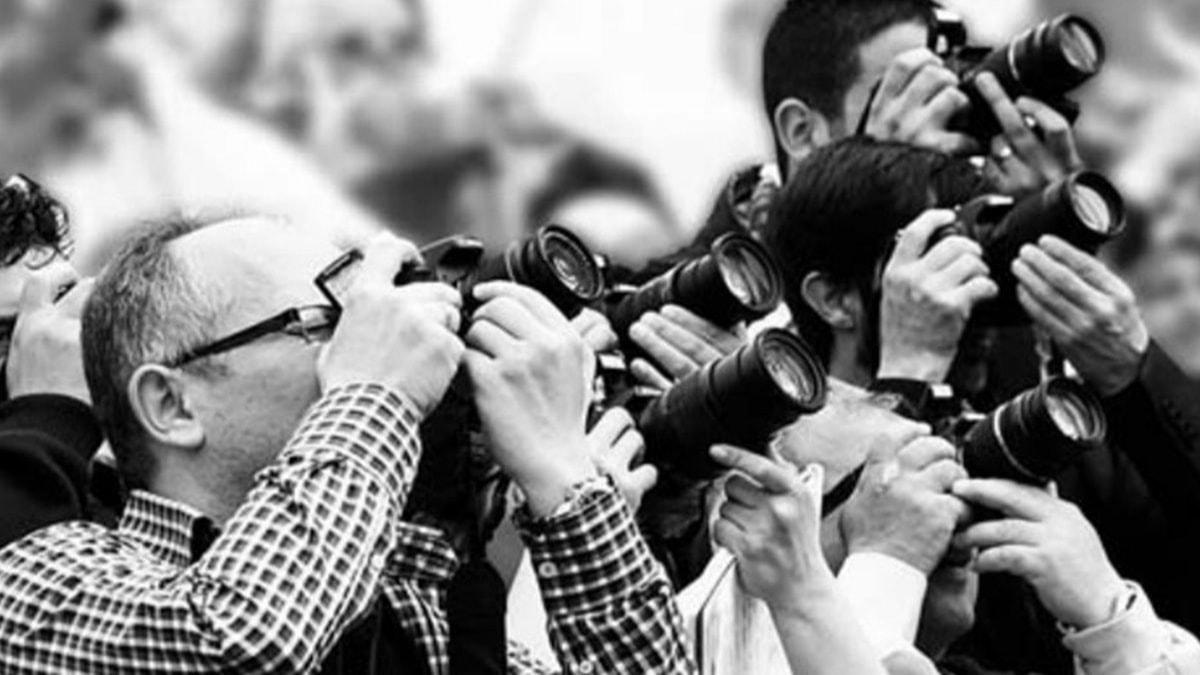
Near East University Faculty of Communication, Department of Journalism held the "Journalism Pandemic Period: Northern Cyprus, Turkey and World Practices" on the online panel with the participation of academics and experienced journalists, who discussed the impact of the pandemic in the media.
At the online panel moderated by Near East University Journalism Department Head Assist. Prof. Dr. Ayça Demet Atay, academicians and journalists made the following presentations; Prof. Dr. Barış Çoban "Journalism, Surveillance and Counter-Surveillance Before and After Pandemic", Assist. Prof. Dr. İbrahim Özejder "Social Media Activism and Its Effect on Political Decisions During the Pandemic Period in Northern Cyprus", Dr. Derya Yüksek "Alternative Media and World Designs After the Pandemic", journalist Ali Baturay "Change in the Turkish Cypriot Media during the Pandemic Period" and Canan Onurer "Rediscovering Journalism Responsibility in the Period of the Pandemic".
Ali Baturay: "Digital media is on the rise ..."
Commenting on the effects of the pandemic process on the Cypriot press, Haber Cyprus General Broadcasting Coordinator Ali Baturay said that the written press was most affected by this process.
Reminding that 19 newspapers were published in Northern Cyprus before the pandemic, Ali Baturay said, “During the pandemic period, the number of printed newspapers decreased to five. Two months later it increased to 15. “There are newspapers selling 100, 60, even 40 in numbers”.
Stating that during the pandemic period, the rise of digital media and the decline of traditional media was witnessed, Baturay said that the news in the newspapers people buy from the dealer the next day are “consumed news”. Stating that traditional media should create interesting content in order to cope with digital media, Baturay also touched on the problems encountered in digital media. Ali Baturay said, “News is made with the traditional media approach in digital media,” and continued that there are news sites that act in the role of spokespersons for political parties.
Canan Onurer: "The Most Important Issue is Confirmation ..."
Journalist Canan Onurer said that they were caught unprepared for the pandemic and said “Digital media was not prepared for this situation due to its traditional mentality”.
Saying, “Normally, nothing will be the same as before”, Onurer stated that the pandemic process reminded the ethical responsibility of journalism. Canan Onurer said: “There is an epidemic, there is a great panic in the public. The first questions are 'who' and 'where'. We have reached the point that we shouldn't ask these most basic questions of journalism. On the one hand, there are accurate news, fast news, and the urge to circumvent news, on the other hand, there are public health, patient rights, personality rights and our ethical concerns. The first thing we lost was the speed. We had to fall back in speed. Confirmation has become the most important issue. We had a great difficulty in the part we will confirm from."
Prof. Dr. Barış Çoban: "Alternative Media Fifth Power ..."
Known for his work on alternative media, social movements and citizen journalism, Doğuş University faculty member Prof. Dr. Barış Çoban commented on the surveillance and counter-surveillance relationships before and after the pandemic.
Prof. Dr. Çoban stated that people live in a secure society and they voluntarily accept surveillance. Stating that traditional media is integrated into the system within commercial relations, Çoban emphasized that alternative media functions as the fifth power in our age. Stating that the importance of citizen journalism has emerged during the pandemic process, Prof. Dr. Çoban stated that with the applications on mobile phones, everyone can become a citizen journalist.
Dr. Derya Yüksek: "The new normal is being questioned ..."
In the panel, Dr. Derya Yüksek, who made a presentation titled "Alternative Media and World Designs After the Pandemic", stated that the crisis prompted people to seek new creative ways. Pointing out the difference in alternative media not only in terms of content but also in terms of relations, Yüksek emphasized that participatory media processes that question inequality are needed. “The fight against fake news, stance against marginalization, campaigns for the disadvantaged and social solidarity shed light on our alternative media path,” said Yüksek.
İbrahim Özejder: "Public opinion formed in social media directed the government ..."
Near East University Faculty Member Assist Prof. Dr. İbrahim Özejder said that the public opinion formed on social media during the pandemic period in Northern Cyprus guided the government decisions. Expressing that the public's need for information is met through social media in an environment of ignorance and uncertainty, Özejder emphasized that professional health organizations, social media groups related to COVID-19 and opinions of some doctor leaders played an important role in the process. Özejder said that the public opinion formed through social media enabled the government to make the right decisions and to overcome the pandemic process with little damage.

